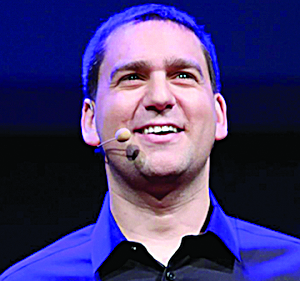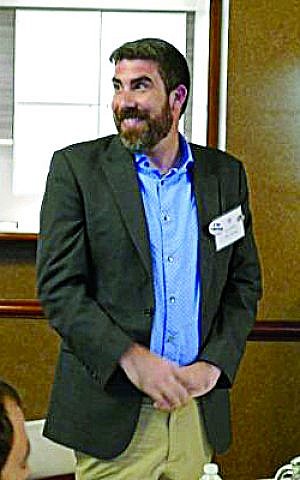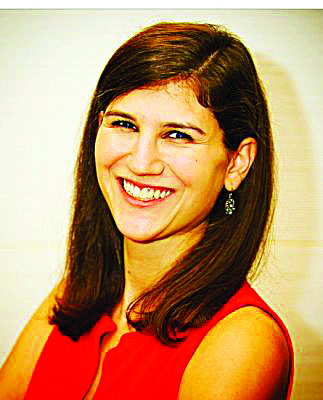Serious About Cyberbullying
Most teens have experienced cyberbullying. Counselors and community leaders who work with youth offer advice to keep them safe.
“Do not do unto others that which you hate done unto yourself – that is the entire Torah. The rest is commentary; go ahead and study it.” (Hillel)
In an impulsive moment that she will long regret, a teenage girl sends her boyfriend a sexy picture via the internet. After they break up, a vindictive boyfriend sends it around the school – a cruel move with far-reaching consequences. The damage is permanent and may lead to suicidal thoughts, school absenteeism, and other dangerous behavior.
Cyberbullying, or online harassment, is a pervasive problem among today’s American teens, including those in the Jewish community, whose central methods of communication and relationship-building are texting, instant messaging, social media and the like.
Most U.S. teens – 59 percent – have experienced cyberbullying, according to a recent study by the Pew Research Center. Name-calling (42 percent) and rumor-spreading (32 percent) were the most common forms of harassment the teens reported in the survey conducted earlier this year.
Teens recognize the issue. The vast majority – 90 percent – believe online harassment is a problem for people their age and 63 percent say it’s a major problem, the study showed. An equal number of boys and girls are affected. And most think more can be done to address the subject.
“Cyberbullying includes sending, posting, or sharing negative, harmful, false, or mean content about someone else,” according to stopbullying.com, a website managed by the U.S. Department of Health and Human Services.
“It can include sharing personal or private information about someone else causing embarrassment or humiliation.” Some cyberbullying even crosses the line into unlawful or criminal behavior, the sites states.
And just like other crimes, it tends to involve a victim and a perpetrator, permanently harming the “online reputations of everyone involved – not just the person being bullied, but those doing the bullying or participating in it.”

With October being national bullying prevention month, we asked a handful of area social workers, advisors, and community leaders who deal with teens and issues of hate to weigh in on how cyberbullying affects the Jewish community.
The problem with the internet is that teens can hide behind a computer and feel invincible, said Vicki Leopold, a licensed clinical social worker in Fayetteville.
“Anonymity gives some teens license, and kids can easily seek revenge on social media for situations that happened in school or at parties,” she said. “Words and actions have meanings and what seems like a joke can weigh heavily on an insecure, vulnerable teen.”
Leopold draws on Hillel’s message when advising teens, “Never do anything that you would not want someone to do to you and if it feels wrong to do, it is probably wrong.”
Ben Halpert, founder and president of Savvy Cyber Kids, speaks frequently about the issue.

“Because I have the privilege of discussing cyberbullying and other cyber security and cyber ethics topics at schools in Atlanta and across the country, I can tell you first-hand that every child has been exposed to cyberbullying in some form or another. Some kids, especially our youngest children, don’t even know what they are being exposed to.”
Even if they haven’t been the target of cyberbullying, most kids have seen someone else being victimized, “whether in a game, social media app, YouTube, or through another connected technology.”
Harassment in the Jewish World
Cyberbullying is a relatively new subject for the Jewish community. It comes to the attention of Jewish leaders most often when it involves anti-Semitism and anti-Israel harassment.
“We are seeing incidents of hatred online from young people at alarming rates,” said Erin Beacham, education director for the Anti-Defamation League Southeast. “Social media has changed the way people communicate, as it enables users to post hateful rhetoric anonymously, along with quick and thoughtless responses. Everyone needs to be thoughtful of their digital footprint and communities need to address issues of cyberhate head-on and proactively.”
Any complaints of discrimination, discriminatory harassment and retaliation are taken seriously on Georgia campuses, said Russ Shulkes, executive director of Hillels of Georgia.

“Obviously, Hillel takes a strong stand against such nefarious activity and would exclude any Hillel participant from further Hillel experiences if they would take part in such activity.”
The ADL has a variety of resources for parents and teachers to address bullying and cyberbullying. It also offers interactive workshops for students, teachers and parents.
“In all of our programs, we encourage students to respond to bias and be allies for each other whether on campus or online,” Beacham said.
Cyberbullying is a pressing concern, too, for Israel advocates, said Julie Katz, assistant director of the American Jewish Committee Atlanta. “Depending on the campus environment, Zionist leaders may be subjected to harassment, threats, shaming and isolation. By providing incorrect, biased and incomplete information about Israel, then highlighting the Zionist student’s support of the Jewish state, cyberbullies can isolate pro-Israel students online and by extension, as leaders on campus.”

The Israel advocacy training program of AJC’s Leaders for Tomorrow gives high school students the tools to address anti-Israel cyberbullying, Katz said. “We not only teach our students about Israel’s history and policy, but also train them in the most effective method of high-level advocacy: strategic relationship building. LFT trains Israel advocates to build relationships with professors, campus officials and other student leaders so when these situations arise, they have allies who will support and defend them, as well as take action to ensure their safety and well-being.”
Parental Controls
The key to preventing and addressing cyberbullying is parental involvement, several interviewed for this story said.
“Parents need to be aware that their kids are being exposed to cyberbullying in one form or another and talk to their children about the topic,” said Halpert of Savvy Cyber Kids, which offers free digital parenting guides.
“How a parent addresses the topic of cyberbullying depends on their children’s age.”
For younger children, parents should ask “if they have ever seen mean words or heard mean talk when using their technology, which includes all the games and apps they may be playing or in comments they see under YouTube videos,” he said.
“Parents should make sure that their kids know that they can always come to them if they see something that they do not understand, makes them feel funny or scared.”
For older children, parents should try to understand what their child has been exposed to online and how they have responded in the past, he said. “Parents should talk to their kids about the concepts of respect and empathy towards others to make sure their kids are not the bullies. Next, parents should talk to their kids about what being a bystander and upstander mean and how they respond when they see someone else being cyberbullied can make all the difference to another child.”

Dan Arnold deals with the issue as a licensed clinical social worker and director of clinical services at Jewish Family & Career Services.
“Part of what we talk about with parents is the need to educate themselves to the pressures and vulnerabilities that children experience and can be exposed to, both online and in the real world,” Arnold said.
“In most situations, our children know more about technology and social media than we do. It is crucial that we maintain open lines of communication and that we are asking questions about our children’s online activity. We need to be available to kids and be a place to seek support without judgment,” he said.
“Children need to be careful what they share and understand that they don’t own the information that they put online.” Sometimes, he advises taking a break from social media.
“It is important to educate students around the power of rumor and gossip, online and in person. The old “squeezing the toothpaste example – you can squeeze it out, but can’t get it back in – is a great metaphor for how gossip can hurt others.”
Leopold said, “I encourage parents to have a heart-to-heart with their youngsters, … to be involved, ask questions, look and see what is happening. I don’t believe in total privacy for teens. Parents must be involved. Kids need supervision and guidance. Parents can spotcheck to see what is happening,” she said. “Encourage direct, open and assertive communication to resolve differences.”
Incidents should be addressed quickly, she advised. “Use teachable moments, using empathy by turning the situation around and asking them: How would you feel?
When I see the kids who have been bullied, it is usually too late to straighten out the situation. I encourage the kids to get back into their lives, hold their heads high, dramas fade quickly in favor of new dramas, and to learn from what has happened to them.”

Teens are growing up in a world that is changing so fast, it’s almost impossible to keep up, said Kelly Cohen, director of JumpSpark, which provides Jewish teen experiences. “We can’t let our discomfort stop us from having the difficult conversations. Whether it’s about cyberbullying or teen mental health, the time has come to make this a community priority.”
Hadassah is hosting a community awareness event on bullying and cyberbullying at 2 p.m. Sunday, Oct. 28, at Temple Beth Tikvah, 9955 Coleman Road, Roswell, Ga. For event details go to www.hadassah.org/atlanta.
For more information about cyberbullying: www.adl.org/education/resources/tools-and-strategies/bullying-andcyberbullying-prevention-strategies.
Logan C. Ritchie contributed to this story.




comments